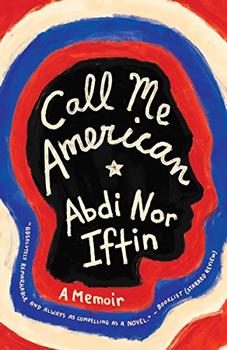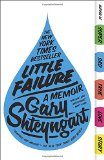Summary | Excerpt | Reviews | Beyond the book | Read-Alikes | Genres & Themes | Author Bio

Three Generations, Two Continents, and a Dinner Table (a Memoir with Recipes)
by Boris FishmanI adore authors who not only write about the big themes that possess them, but also drop little things in between that bloom in our minds – like those colorful capsules that become spongy dinosaurs after you toss them in water. Boris Fishman's expansive memoir, Savage Feast, works much the same way.
Savage Feast is mainly about his family's emigration from the Soviet Union to the United States in 1988 when he was nine, told through the steady gaze at the food in their lives. It's about the descriptions of those foods, not the way food is usually described, like a siren song, but more like a kind of workaday poetry that seems so right we wonder why we haven't thought about food in that way before. Perhaps we haven't because most of us haven't had to engage in the Soviet Union's black market to keep eating well. Fishman did - he lived in there when times were tough and food was hard to come by.
It all begins in the prologue, where Fishman writes about the food he brings onboard flights, far better than what the airlines offer, such as "lightly fried whiting" and "chicken schnitzels in an egg batter." And it continues when he expresses shock at what airport food courts offer, describing Sbarro pizza as having "black suns of pepperoni." Personally, living in a town in Southern California where the local mall food court has Sbarro, I read that and wondered how was this perfect description not obvious to me before? Fishman gamely continues on. Read about helzel, which is sausage-like, and wonder what exactly you've been eating all this time and if you can do better.
Fishman writes extensively about many members of his family, including his parents and grandparents, and their stunning hardships in the Soviet Union. But the centerpiece is his grandfather, Arkady, in South Brooklyn; and his home health aide, Oksana, from Ukraine. Fishman really hits his stride as he begins Part II with a glorious, deeply satisfying chapter about the first meeting between his grandfather and Arkady, which becomes a lasting connection - through food, of course. The gradual warmth that builds up from the beginning finds its gentle furnace here. It's an atmospheric piece of beautiful music, their introductory social ballet. Toward the end of Savage Feast, with all the pieces finally in place, Fishman tells of Arkady's origins, and it's astonishing, with just as much impact as the author's description of their first meeting.
There's an at-times solemn, at-times playful, always easy rhythm to Fishman's reminisces. He wants readers to know everything he can possibly tell them about his and his family members' lives, but he wants to take his time in getting there, such as when he and his family stop in Vienna on their way to Rome after leaving the Soviet Union, and his father discovers a supermarket for the first time. He's agog at how much food there is, surprised by the automatic doors at the entrance, and amazed that there are plastic bags instead of the string bags used in the Soviet Union. This theme goes on as the family struggles to adjust to life in the United States, the struggle then threading its way through Fishman's life. He feels disoriented as he tries to find his own footing.
The last word about this delightfully understated, ambrosial pleasure of a memoir should go to Oksana, who, over time, has helped Fishman make sense of his world in this country. It's July 2015, and Arkady has gotten much older. Fishman asks Oksana if she had all the money in the world and could do whatever she wanted with it, without outside concerns, what would she do? In the midst of her musings, she says, "I want to leave some kind of trace, you know? And I know I never will." Because of Fishman and Savage Feast, she'll leave her trace. Countless readers will remember her and Boris Fishman's family.
![]() This review was originally published in The BookBrowse Review in February 2019, and has been updated for the
March 2020 edition.
Click here to go to this issue.
This review was originally published in The BookBrowse Review in February 2019, and has been updated for the
March 2020 edition.
Click here to go to this issue.

If you liked Savage Feast, try these:

by Abdi Nor Iftin
Published 2019
The incredible true story of a boy living in war-torn Somalia who escapes to America--first by way of the movies; years later, through a miraculous green card.

by Gary Shteyngart
Published 2014
A memoir of an immigrant family coming to America, as told by a lifelong misfit who forged from his imagination an essential literary voice and, against all odds, a place in the world.
Your guide toexceptional books
BookBrowse seeks out and recommends the best in contemporary fiction and nonfiction—books that not only engage and entertain but also deepen our understanding of ourselves and the world around us.